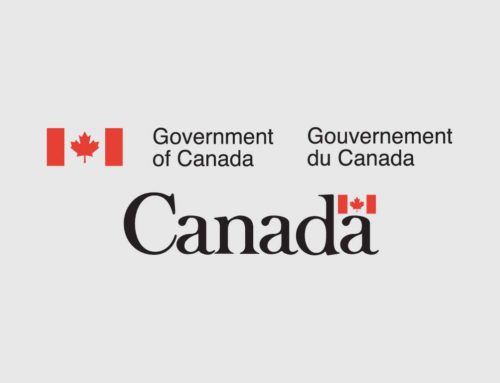Susan Cox, CPA, CA
Probate is the court process to approve the validity of a deceased person’s Will, and to appoint an executor for their estate who can then transfer assets to the beneficiaries. Probating a Will may not be required in all scenarios, such as when the first partner of a married couple dies or when there is no real estate or significant financial assets in the estate. However, probate is required when there is real estate not jointly held with a right of survivorship (i.e., it does not pass directly to the co-owner), or if a financial institution holding any of the deceased’s funds or investments requires it.
Applying for probate
The executor will normally apply for probate in the province in which the deceased ordinarily lived. It may take many months to obtain a probate order in some jurisdictions, delaying the ultimate distribution of the estate to the beneficiaries.
The fees for obtaining probate, known as “Estate Administration Tax” in some jurisdictions, vary significantly between provinces. For example, the fees for a $2 million estate can range from a nominal fee in Quebec to have the Will authenticated by the Superior Court, to more than $30,000 in probate fees in Nova Scotia. In Ontario, probate fees are calculated at 0.5% on the first $50,000 of the estate and at 1.5% on the remainder, but no fees are payable for estates valued at less than $1,000. For estate certificates requested after December 31, 2019, Ontario has eliminated the Estate Administration Tax for all estates valued at less than $50,000, so the total probate fees will be 1.5% of the value of the estate in excess of $50,000.
Assets included in the estate
Probate fees are based on the fair market value of the assets in the estate at the date of a person’s death. These assets include:
- real estate – net of encumbrances (e.g., mortgages and home equity lines of credit)
- bank accounts
- investments
- life insurance policies that list the estate as the beneficiary
- vehicles and vessels
- collections
- furniture
Probate will not apply to real estate jointly held with the right of survivorship, as the ownership is transferred directly to the co-owner. Similarly, life insurance policies as well as investments in Registered Retirement Savings Plans (RRSPs), Registered Retirement Income Funds (RRIFs) and Tax-Free Savings Accounts (TFSAs) that name a specific beneficiary are distributed directly to that beneficiary and therefore not included in the estate.
A probate order will only apply to the assets in the province in which the deceased ordinarily lived. If the deceased had assets in another province, the executor will have to apply to “reseal the probate,” which requests that the courts in the second province confirm the Grant of Probate in the first province. For example, if the deceased normally lived in Ontario but also owned a ski chalet in Alberta, the executor would apply for the probate Certificate in Ontario to cover the home, investments and other assets there, and pay the appropriate probate fees to Ontario on those assets. Once the Ontario probate Certificate has been received, the executor would apply to reseal the probate in Alberta to cover the ski chalet and pay the appropriate probate fees on
the value of it to Alberta.
It is worth noting that while mortgages are deducted from the value of the real estate, other debts such as car loans, credit cards or unsecured lines of credit are not deducted from the value of the estate. Similarly, there is no deduction for the potential selling costs for any assets in the estate.
Probate fee planning opportunities
Probate fees can be expensive, but there are some planning opportunities to minimize the costs. The first is to make sure that you name a beneficiary for all life insurance policies, RRSPs, RRIFs and TFSAs to ensure that these assets transfer directly to the beneficiary rather than be included in the estate. Caution should be used in how you do this, as there could be unforeseen consequences. For example, if you name one child as the beneficiary of your RRSP, that child would receive the total value of those assets. However, the RRSP is deemed to have collapsed on the death of the owner, and its fair market value is included in income in the final tax return of the deceased, unless the spousal rollover rules apply. Therefore, the estate would have to pay the taxes on the value of the RRSP assets that only one child received, which may not be a fair result to all the beneficiaries.
A second planning opportunity that is sometimes mentioned is to add an adult child to the title of the home. This is often considered when the first parent of a married couple passes away. While this may reduce the probate fees on the death of the second parent, there may be some significant taxes and other issues to contend with, so extreme caution should be used in implementing this strategy. Adding the child to the title of the home is considered a “gift” for tax purposes, and there is a deemed disposition at its fair market value at the date of transfer. This would likely not trigger a taxable capital gain at that point, since the home would qualify as the principal residence for the parent. However, if that home was sold in the future and if the adult child has another residence, there could be a taxable capital gain on their share of the home for the difference between the fair market value at the date of transfer and the ultimate sale price. The value of the child’s portion of the home could also be included in their assets if they became divorced or if a creditor sued them. Effectively, the parent has given the child control over half their home. This may also result in unequal treatment of the beneficiaries under the terms of the Will.
Another planning strategy includes using multiple Wills. The primary Will covers all assets that require probate in order to be transferred to the beneficiaries, which generally include bank accounts, investment portfolios and real estate. The secondary Will covers assets that can be transferred without requiring probate, including private company shares and personal effects, such as jewellery and artwork. When drafting these Wills, care should be taken to ensure that one does not have the effect of revoking the other, that each Will clearly identifies which assets it covers and that multiple Wills are recognized in the province of residence.
Finally, you can always consider giving assets to your future beneficiaries during your lifetime, as there is no gift tax imposed in Canada.
While probate fees may be a significant expense for an estate, it is important to obtain professional advice to ensure that you are not generating a steep income tax liability down the road or creating ill feelings between your beneficiaries that may last for generations.




